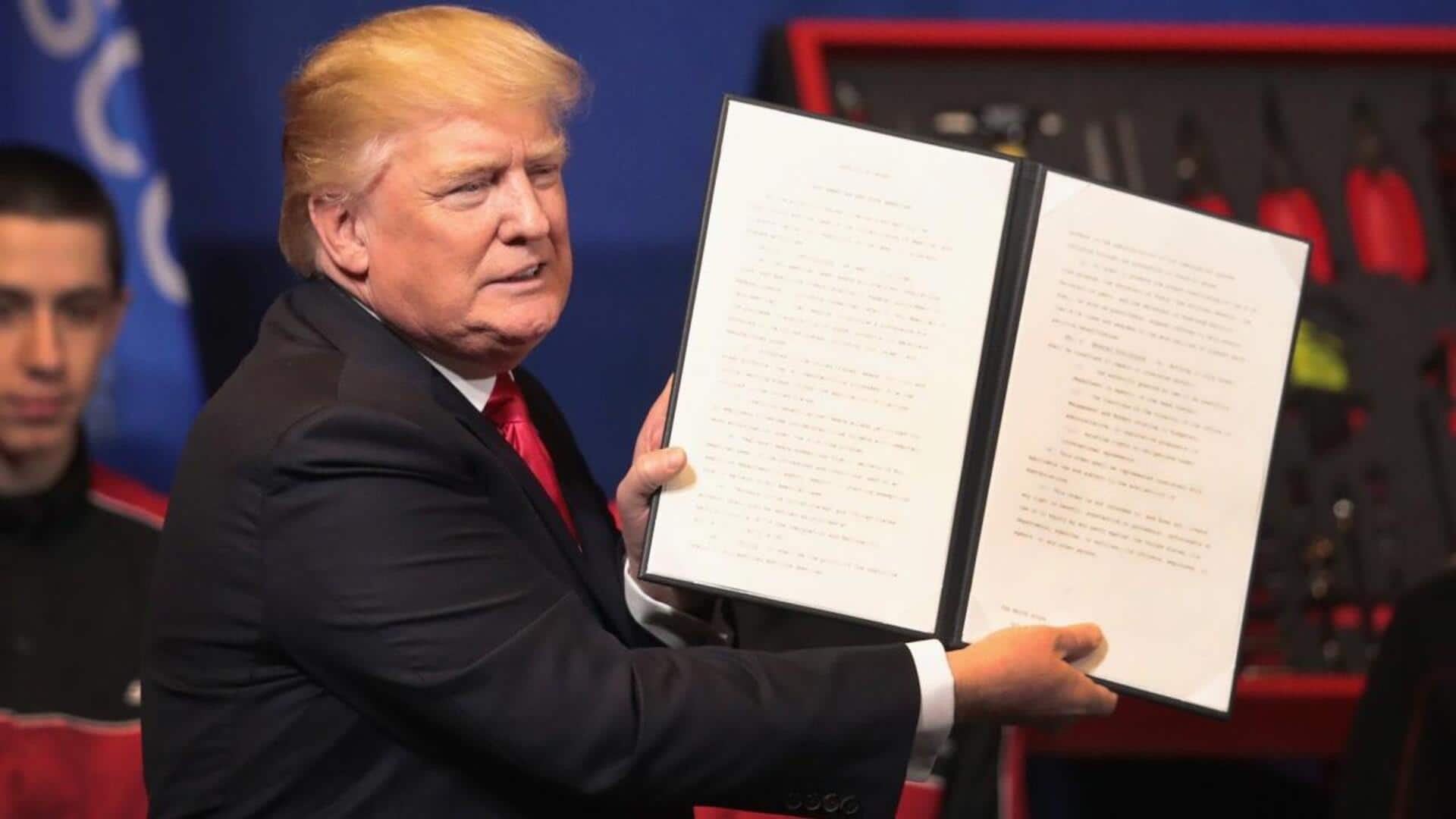
US introduces $100,000 annual fee for H-1B visa applications
What's the story
United States President Donald Trump has signed a new proclamation introducing a $100,000 annual fee for H-1B visa applications. The move is aimed at reforming the skilled worker program, which has been under scrutiny for years. The H-1B program was originally intended to attract exceptional foreign talent for specialized technical roles, but has now become a channel for workers accepting salaries around $60,000 annually, well below the typical compensation for American technology professionals.
Program abuse
White House staff secretary's comments on H-1B visa program
White House staff secretary Will Scharf called the H-1B non-immigrant visa program one of the most abused systems. He said, "This is supposed to allow highly skilled laborers who work in fields that Americans don't work in to come into the United States of America." The new proclamation aims to raise fees for companies sponsoring H-1B applicants, ensuring only highly skilled individuals are brought in.
Job impact
Details about the H-1B visa program
The H-1B program was established in 1990 to attract foreign workers with bachelor's degrees or higher for difficult-to-fill positions, especially in STEM fields. However, critics argue it enables lower wages and limited worker protections. The annual quota of 85,000 visas is distributed through a lottery system. Major tech companies had requested reforms after surging applications reduced individual chances, prompting USCIS to limit candidates to a single lottery entry regardless of multiple job offers.
Approval leaders
Amazon leads in H-1B approvals
Amazon currently leads in H-1B approvals with over 10,000, followed by Tata Consultancy, Microsoft, Apple, and Google. California is home to the largest H-1B workforce. Critics argue many H-1B jobs are junior-level positions instead of senior specialist roles. Companies can save costs by classifying roles at lower skill levels while employing experienced workers. This has led to outsourcing basic technical operations to consultancies like Wipro and Infosys, which employ foreign workers contracted by American firms seeking cost savings.
Reform proposals
Critics welcome changes but call for further reforms
While critics welcome these changes, they are calling for further reforms. The AFL-CIO said the measures are "some steps in the right direction" but advocated for visas to be allocated based on the highest wage offers rather than random selection, a proposal previously floated during Trump's first term. The increased fees could affect hiring foreign workers as it'll cost more for companies. Currently, companies pay $215 to register for the lottery and $780 for a Form I-129 petition.
Rule impact
What may happen?
The move is expected to discourage mass applications for H-1B visas, particularly affecting startups and small businesses that may struggle to absorb the higher upfront cost. With the $100,000 fee, hiring foreign talent becomes as expensive as hiring US citizens for the same role. The move's proponents say that it has the potential to shift focus back to American tech workers.
Twitter Post
Trump signs executive order to raise fee
#WATCH | President Donald J Trump signs an Executive Order to raise the fee that companies pay to sponsor H-1B applicants to $100,000.
— ANI (@ANI) September 19, 2025
White House staff secretary Will Scharf says, "One of the most abused visa systems is the H1-B non-immigrant visa programme. This is supposed to… pic.twitter.com/25LrI4KATn